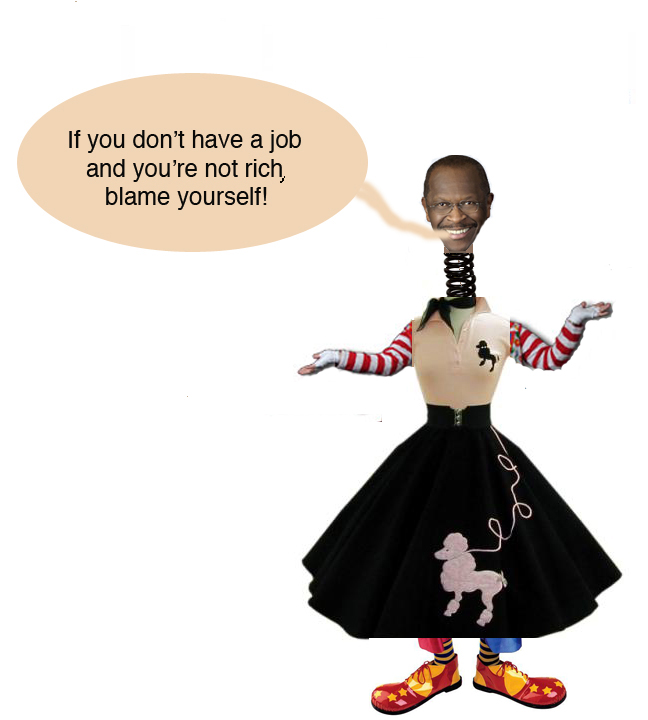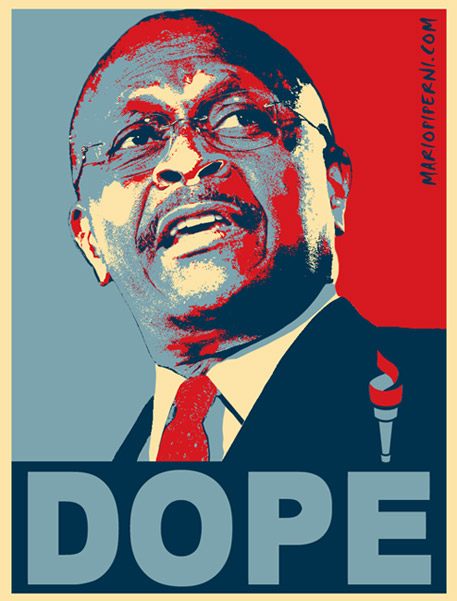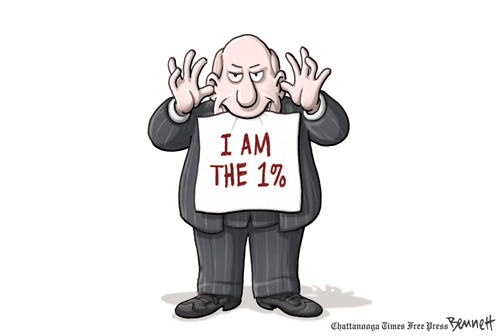how so? did you just read this off some blog?
How about history? Hoover and the Feds followed the advice of the the Austrian school...it led to the great depression. It is scary how close the Hoover/Mellon liquidation plan mirrors the current Teapublicans austerity plan. I guess the right believes that Medieval blood letting just HAS to work!
Economic Policy Under Hoover
Throughout this decline—which carried real GNP per worker down to a level 40 percent below that which it had attained in 1929, and which saw the unemployment rise to take in more than a quarter of the labor force—the government did not try to prop up aggregate demand. The only expansionary fiscal policy action undertaken was the Veterans’ Bonus, passed over President Hoover’s veto. That aside, the full employment budget surplus did not fall over 1929–33.
The Federal Reserve did not use open market operations to keep the nominal money supply from falling. Instead, its only significant systematic use of open market operations was in the other direction: to raise interest rates and discourage gold outflows after the United Kingdom abandoned the gold standard in the fall of 1931.
This inaction did not come about because they did not understand the tools of monetary policy. This inaction did not come about because the Federal Reserve was constrained by the necessity of defending the gold standard. The Federal Reserve knew what it was doing: it was letting the private sector handle the Depression in its own fashion. It saw the private sector’s task as the “liquidation” of the American economy. It feared that expansionary monetary policy would impede the necessary private-sector process of readjustment.
Contemplating in retrospect the wreck of his country’s economy and his own presidency, Herbert Hoover wrote bitterly in his memoirs about those who had advised inaction during the downslide:
The ‘leave-it-alone liquidationists’ headed by Secretary of the Treasury Mellon…felt that government must keep its hands off and let the slump liquidate itself. Mr. Mellon had only one formula: ‘Liquidate labor, liquidate stocks, liquidate the farmers, liquidate real estate’.…He held that even panic was not altogether a bad thing. He said: ‘It will purge the rottenness out of the system. High costs of living and high living will come down. People will work harder, live a more moral life. Values will be adjusted, and enterprising people will pick up the wrecks from less competent people’.
The Federal Reserve took almost no steps to halt the slide into the Great Depression over 1929–33. Instead, the Federal Reserve acted as if appropriate policy was not to try to avoid the oncoming Great Depression, but to allow it to run its course and “liquidate” the unprofitable portions of the private economy.
In adopting such “liquidationist” policies, the Federal Reserve was merely following the recommendations provided by an economic theory of depressions that was in fact common before the Keynesian Revolution and was held by economists like Friedrich Hayek, Lionel Robbins, and Joseph Schumpeter.
The Federal Reserve did not push reserves into the banking system during the 1929–33 decline. It passively stood by while the nominal money stock fell by a third. The federal government did not increase its spending while allowing its tax revenues to fall. Instead, strenuous efforts were made to balance the budget and keep it balanced. These policies were disastrous. They certainly did not stop the contraction in economic activity. They may well have severely aggravated it, and presumably played an important role in making the 1929–41 depression into the Great Depression.
The current of mind that underlay “liquidationism” was not a freak belief held by central bankers and makers of policy alone. Such a “liquidationist” theory of the function of depressions was in fact a common position for economists to take before the Keynesian Revolution, and was held and advanced by economists as eminent as Hayek, Robbins, and Schumpeter. In squeezing an already-weak economy, the makers of American economic policy were to some degree acting as John Maynard Keynes believed that policy makers always act: they were “madmen in authority” obeying voices in the air which were to some degree echoes of academic debates. Academic economics gave central bankers a warrant for their contractionary depression-era policies.
In the aftermath of the Great Depression, the intellectual rout of the liquidationists and the victory of the Keynesians was complete. Pre-Keynesian business cycle theory receives less than a footnote in post-World War II macroeconomic texts.







